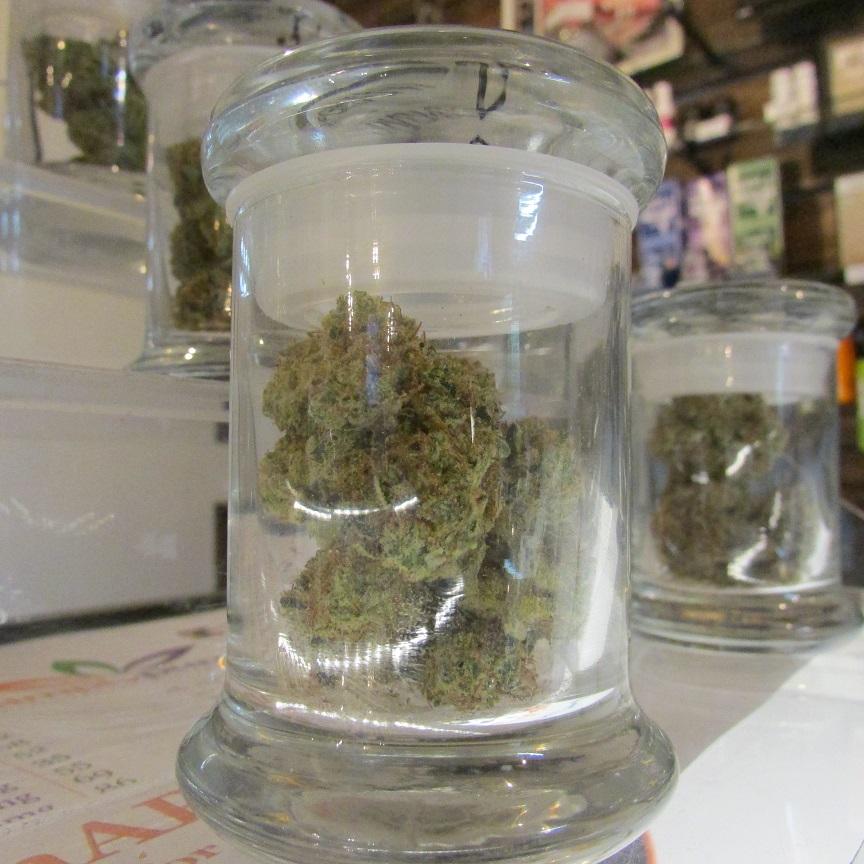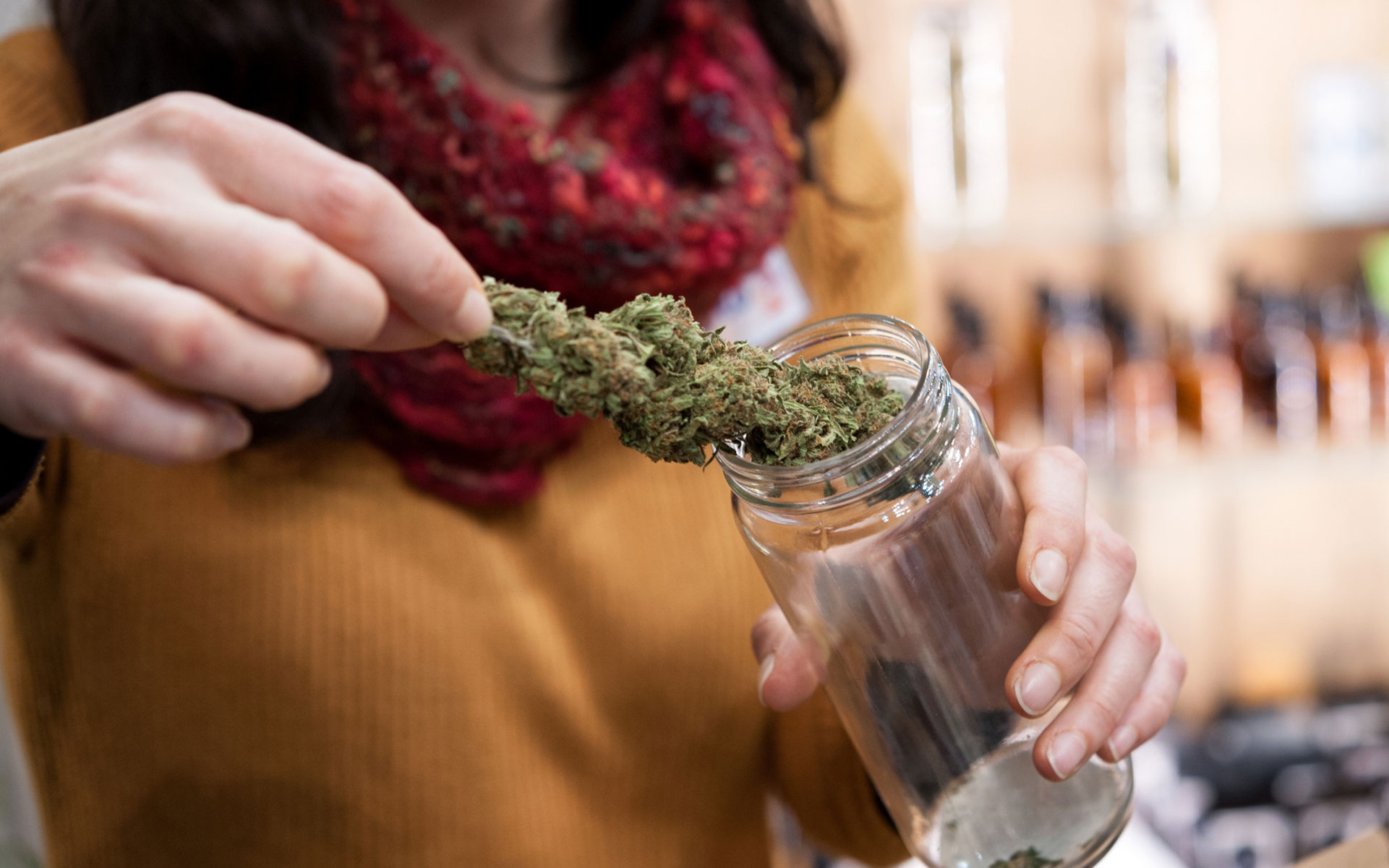Sigh... I wish they would stop calling cannabis a 'drug.'

There's a news clip that couldn't be embedded. Follow the title link to view.
Law enforcement facing the challenges of new legal marijuana laws
As the state begins accepting applications for recreational marijuana business licenses Friday, local police departments already are tackling issues ranging from complaints about marijuana's pungent aroma to preparing for an expected increase in high driving.
Police departments across the state have been dealing with issues surrounding marijuana enforcement for years, both in the black market and since Michigan legalized medical marijuana in 2008. But the new recreational landscape, with the impending widespread availability of pot, has departments evaluating what enforcement looks like going forward.
Some police departments are taking a hands-off approach until they get more guidance from the Legislature. Others expect the courts will get involved as enforcement issues crop up.
“We’ve issued training bulletins and policy updates and ensured officers are aware of applicable changes in recreational marijuana laws,” Wayne County Undersheriff Daniel Pfannes said. “And while we would still take any encounter with an individual who is impaired through the use of marijuana seriously, we clearly recognize the restrictions put on law enforcement by the passage of recreational marijuana.”
“The people voted for it and they’re going to get what they wanted,” he added.
Michigan State Police officers are taking the impending change in stride.
“The fallacy that there’s going to be all this marijuana out there is just that, a fallacy,” said Lt. Michael Shaw of the Michigan State Police. “It’s already always been out there, so this isn’t a big deal to us.”
The state’s Marijuana Regulatory Agency will begin to accept applications Friday from businesses that want to get into the recreational market. While voters approved legalizing marijuana for adult recreational use last November, pot won’t be available for sale until sometime early next year. But under the law, you can grow it in your home.
Looking for more high drivers
Police departments, which have long been training to recognize the signs of high drivers, are preparing for more marijuana users on the road.
There are a couple of dozen "drug recognition experts" in metro Detroit police departments who can be called on when a suspected drugged driver is stopped. These officers have received advanced training to recognize the signs of a driver under the influence of cannabis.
Macomb County Sheriff's Sgt. Renee Yax said the department has one drug recognition expert with a second in training.
Tools available to police officers now, such as field sobriety tests — think reciting the alphabet, walking a straight line or looking for other telltale signs such as bloodshot eyes, slurred speech or difficulty coming up with a driver’s license — will be key in marijuana impairment cases also, law enforcement officials said.
Those are the first indicators of a high driver and those tests will be buttressed by drug recognition experts who can be called in to administer oral cheek swabs that can detect the presence of THC — or tetrahydrocannabinol, the psychoactive element in cannabis that produces a high in a driver's system.
But that doesn't always translate into impairment because THC stays in a person's body longer than alcohol. So while an oral swab can help determine whether a driver is high, it is not admissible in court yet and many departments still use a more costly and time-consuming blood draw to test for THC — a test that is more accurate.
Yax said deputies treat a driver operating under the influence of drugs similar to a driver who is under the influence of alcohol.
"The deputy is observing the vehicle to see how it's operating (speeds, swerving, etc.) The vehicle is stopped and the deputy is looking for signs of intoxication and possibly the smell of marijuana," Yax said in an email. "The driver will be given field sobriety tasks and the DRE (drug recognition expert) may be requested. A blood draw may be sought."
Farmington Hills Police Chief Chuck Nebus said "it's a lot easier for a police officer to feel confident to arrest someone for drunk driving,” noting that breathalyzer tests are quick and easy.
“It takes a lot more confidence to arrest someone for drugged driving if you just have erratic driving to go on," he said. "If a test comes back and it shows that there are no drugs in their system, that’s not what an officer wants on their report.”
The state is in the process of expanding its initial five-county pilot oral swab program to 55 police departments across the state to buttress other sobriety testing. There were 236 drug-related traffic fatalities in 2016, with the number rising to 247 in 2018, said MSP.
"We are monitoring Michigan State Police's cheek swab program and its effectiveness," said Warren Police Commissioner Bill Dwyer. "Implementing something similar to what they're doing or the same program they're doing might happen. It makes sense to me. We just gotta know more about it.”
In Colorado, where adult recreational use began in 2014, marijuana-related fatalities increased from 94 in 2014 to 162 in 2017, according to the National Highway Traffic Safety Administration.
Lots of complaints about that smell
But driving high isn’t the only issue for police departments.
In Farmington Hills, police are getting numerous complaints of marijuana odors, especially in apartment and condo complexes where close quarters exacerbate the distinctive aroma.
But there is little the department can do, Nebus said.
With marijuana use and possession now legal and people allowed to grow up to 12 plants in their homes for personal use, the pungent smell of weed alone is not enough for police to investigate.
“If it’s just the smell and odor we’re hearing about, that’s not enough probable cause for us to go much further,” he said. “Before recreational became legal, we might have been doing search warrants, but everything seems to be gray and cloudy until the courts rule on the new laws.
“When people call about the odor and it bothers them to the point that they can’t sleep, there doesn’t really seem to be solutions for that.”
Landlords can prohibit their tenants from growing pot or any type of smoking in their rental units. But they can’t ban other legal forms of marijuana use, such as pot-infused edibles.
Dwyer said the city sometimes gets information that a resident is growing more than the allowed number of plants in their homes and the department's special investigation unit will check it out, but "unless we receive a complaint or something, we can't go out and knock on every door and check.”
Sterling Heights Police Lt. Mario Bastianelli said the department is investigating dozens of marijuana complaints in the city, ranging from smells that seep beyond a home's property line to excessive noise to excessive lights and suspicious vehicle traffic.
"If a home owner is determined to grow marijuana illegally, they will be cited and the grow operation will be shut down," he wrote in an email to the Free Press.
In Clinton Township, Police Chief Fred Posavetz said the department hasn't done any extra training for the upcoming commercial market. Officers already have been trained to request a blood test if they stop a suspected high driver.
But his officers won't be checking to see whether people are growing more than the permitted number of plants at their homes or looking for people who are smoking pot in public, which is illegal under the new law.
If they get caught red-handed, however, the smoker will be issued an ordinance violation ticket, Posavetz added.
But most departments aren’t actively patrolling for pot smokers in public.
“It’s not anything we’re looking for. We all smell marijuana more than we used to,” said MSP’s Shaw. “But you can’t smoke in public. We do have statewide jurisdiction and if we see something, it would be up to the trooper to decide on what to do with that.”
Police want more guidance from state
Many departments are frustrated by the lack of guidance in the ballot proposal that legalized recreational marijuana last year.
Oakland County Sheriff Mike Bouchard said until the Legislature passes some clarifying legislation on what police departments can and can’t do, the department has taken a hands-off approach.
“We haven’t investigated a marijuana case in more than a year,” he said. “We’re in absolute limbo in terms of law enforcement. Even in California, the governor recently called for a serious crackdown on trafficking and growing marijuana outside the legal system.”
K-9 squads still on the job
One area of law enforcement that will not be affected by the new recreational marijuana market are the drug-sniffing dogs employed by police departments.
The dogs are trained to alert on a wide variety of illegal substances, from heroin and cocaine to marijuana. They will still be used in that capacity, but Oakland County Undersheriff Mike McCabe said new dogs probably won’t be trained in detecting marijuana.
“We don’t think there is a need to decertify a dog because one of the drugs they’ve been trained to detect is no longer illegal,” Wayne County’s Pfannes said.
Warren’s Dwyer said at this point the department is not going to replace or retrain its dogs.
"It's too early, and we're not gonna jump the gun," he said. "They're still able to detect .other drugs."




